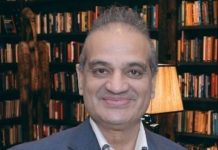The latest round of by-elections has concluded with the ruling Pakistan Muslim League-Nawaz (PML-N) securing victories on almost all contested seats, further consolidating its power. While the party celebrates what it calls a “public endorsement” of its governance, opposition parties have rejected the results outright, alleging massive rigging, misuse of state machinery, and manipulation of voter turnout. The controversy has once again pushed Pakistan’s electoral credibility into question.
One of the most surprising results came from Haripur — long considered one of the strongest political bastions of Pakistan Tehreek-e-Insaf (PTI). In a constituency where the ruling party in Khyber Pakhtunkhwa normally enjoys a clear advantage, PTI suffered a major upset. The defeat of Omar Ayub’s wife, a candidate backed by PTI leadership, has stunned political observers. Haripur has historically been a PTI stronghold, and in KP, sitting governments often maintain their seats in by-elections. This reversal has forced many to reflect on whether PTI’s internal turmoil, voter frustration, or external interference contributed to the loss.
For PTI, the result demands serious introspection. The party has long claimed unparalleled public support in Khyber Pakhtunkhwa, yet the by-election outcome signals a shift in political winds — or, as the opposition alleges, a controlled and engineered outcome. Regardless of the explanation, the defeat has triggered calls for soul-searching within PTI ranks, as well as a reevaluation of strategy, leadership approach, and organizational discipline.
However, beneath the political drama lies a much deeper and alarming reality: the public’s trust in elections has eroded to a dangerous extent. In the eyes of many Pakistanis, the by-elections lacked credibility, transparency, and fairness. Allegations of rigging have become almost routine in Pakistan’s electoral history — whether under civilian governments, caretaker setups, or even under the oversight of different Election Commissions. This growing trend of disputed mandates is now raising serious concerns about the future stability of the democratic process.
The Election Commission of Pakistan (ECP) finds itself once again in the crosshairs. Critics argue that it has not done enough to ensure impartiality or to address the systemic weaknesses that enable manipulation. Without meaningful reforms, stronger oversight, and unquestionable transparency, the ECP will continue to struggle to restore its legitimacy.
Beyond domestic politics, these developments carry significant international consequences. Credible elections are a prerequisite for attracting foreign investment, building international confidence, and securing economic partnerships. Investors are reluctant to engage with countries where political uncertainty prevails and electoral disputes become the norm. Pakistan, already grappling with economic challenges, cannot afford further reputational damage.
The latest by-elections serve as a stark reminder that Pakistan must urgently reverse the pattern of contested polls. The country cannot progress, build stable institutions, or achieve a respectable standing in the global community unless elections are seen as free, fair, and reflective of the people’s will. Political parties, state institutions, and civil society must collectively acknowledge the gravity of the situation.
If Pakistan wishes to move forward, strengthen democracy, and regain international trust, credible elections must become the rule — not the exception. The by-elections may be over, but the debate over Pakistan’s democratic future has only just begun.

















